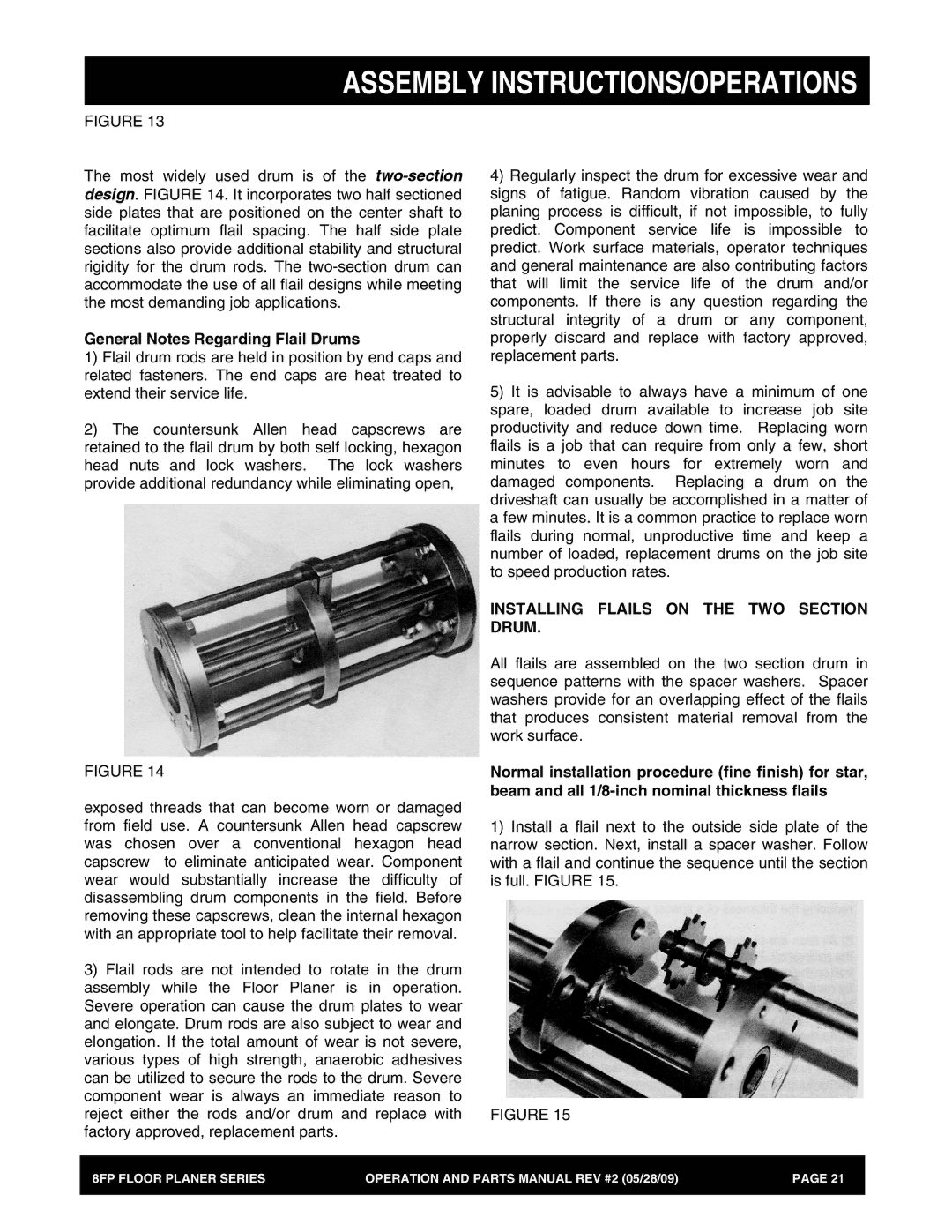
ASSEMBLY INSTRUCTIONS/OPERATIONS
FIGURE 13
The most widely used drum is of the
side plates that are positioned on the center shaft to facilitate optimum flail spacing. The half side plate sections also provide additional stability and structural rigidity for the drum rods. The
General Notes Regarding Flail Drums
1)Flail drum rods are held in position by end caps and related fasteners. The end caps are heat treated to extend their service life.
2)The countersunk Allen head capscrews are retained to the flail drum by both self locking, hexagon head nuts and lock washers. The lock washers provide additional redundancy while eliminating open,
FIGURE 14
exposed threads that can become worn or damaged from field use. A countersunk Allen head capscrew was chosen over a conventional hexagon head capscrew to eliminate anticipated wear. Component wear would substantially increase the difficulty of disassembling drum components in the field. Before removing these capscrews, clean the internal hexagon with an appropriate tool to help facilitate their removal.
3)Flail rods are not intended to rotate in the drum assembly while the Floor Planer is in operation. Severe operation can cause the drum plates to wear and elongate. Drum rods are also subject to wear and elongation. If the total amount of wear is not severe, various types of high strength, anaerobic adhesives can be utilized to secure the rods to the drum. Severe component wear is always an immediate reason to reject either the rods and/or drum and replace with factory approved, replacement parts.
4)Regularly inspect the drum for excessive wear and signs of fatigue. Random vibration caused by the planing process is difficult, if not impossible, to fully predict. Component service life is impossible to predict. Work surface materials, operator techniques and general maintenance are also contributing factors that will limit the service life of the drum and/or components. If there is any question regarding the structural integrity of a drum or any component, properly discard and replace with factory approved, replacement parts.
5)It is advisable to always have a minimum of one spare, loaded drum available to increase job site productivity and reduce down time. Replacing worn flails is a job that can require from only a few, short minutes to even hours for extremely worn and damaged components. Replacing a drum on the driveshaft can usually be accomplished in a matter of a few minutes. It is a common practice to replace worn flails during normal, unproductive time and keep a number of loaded, replacement drums on the job site to speed production rates.
INSTALLING FLAILS ON THE TWO SECTION DRUM.
All flails are assembled on the two section drum in sequence patterns with the spacer washers. Spacer washers provide for an overlapping effect of the flails that produces consistent material removal from the work surface.
Normal installation procedure (fine finish) for star, beam and all
1)Install a flail next to the outside side plate of the narrow section. Next, install a spacer washer. Follow with a flail and continue the sequence until the section is full. FIGURE 15.
FIGURE 15
8FP FLOOR PLANER SERIES | OPERATION AND PARTS MANUAL REV #2 (05/28/09) | PAGE 21 |
|
|
|
